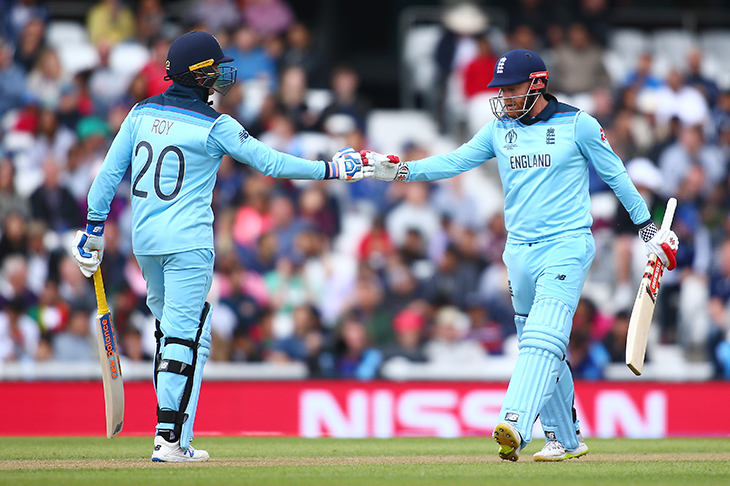Well, you have come a long way baby. As the whizz-bang hoopla of the cricket World Cup strides into view at the Oval, take a look back nearly 50 years to the very first limited overs international played in 1971. It was between Australia and England in Melbourne; 40 eight-ball overs a side, on what would have been the last day of a Test that had been rained off. Australia won with six overs to spare. The names on the team sheet are not those you would associate with breathless one-day hitting: Boycott, Edrich, Fletcher, Lawry and Stackpole. The run rate was pretty painful: England scored at below four an over and Ian Chappell hit the solitary six for Australia. England managed a grand total of just eight fours. Happy days.
I don’t think anyone watching realised what a revolution was under way. International 50-over cricket has become a compelling spectacle, arguably the best format. More concise than Test cricket of course, but not so concise that it eliminates ebb and flow, which is T20’s main shortcoming. Mourn the decline of Test cricket by all means, but don’t make out it’s the death of cricket.
Now the rarity of England going into any global tournament as favourites sets the heart a-pumping straight off. This is a team that can make 350 batting first, seemingly without breaking sweat, and have no trouble chasing down that total. The fielding is sensational: Jonny Bairstow’s catch on the boundary in the desultory warm-up against Afghanistan where he flicked up the ball before crossing and recrossing the rope to regain his balance has become almost routine. And Bairstow is by trade a wicket-keeper.
The bowling attack is exceptionally well balanced: wily, leggie Adil Rashid, Plunkett solid in the middle overs, proper pace in Archer and Wood, and steely death bowling from Stokes and Woakes (if only Foakes was there for poetic purposes). Jos Buttler will be a real star, a man who thinks nothing of making 50 in 30 balls. The only thing stopping him making several hundreds is the quality of the batting coming before him. Bairstow and Roy are a phenomenal opening pair; Root always seems to have made 40 or so before you can blink; and Morgan is sweeping into form at the right time. The format is spot-on: ten teams and everyone plays everyone, then into the semi-finals. None of that Super-Sixes silliness. There aren’t many minnows, though we will all cheer for the Afghans. And with few minnows, there’s a bit less chance of England doing something really stupid, like losing to the Dutch.
To adapt Gary Lineker’s wise words on football (22 men chase a ball and the Germans always win), there is a great danger that English club rugby is going the same way: after several months of giant men knocking the living daylights out of each other, Saracens and Exeter always win. This Premiership final on Saturday will be the third the two teams have contested out of the last four, and the two semi-finals were abysmally one-sided with Northampton and Gloucester flattened. And why isn’t Exeter’s director of rugby, Rob Baxter, the first name on any list when it comes to international coaching? Not all rugby coaches have to come from the Southern hemisphere. Baxter is bloody brilliant.
We might be moving into a good time for home-grown coaches generally. Dean Smith’s success in getting Aston Villa back into the Premier League is a rare achievement by an English manager but one, when taken with the growing stature of Gareth Southgate, Eddie Howe, Graham Potter and others, that suggests the moment must be near when an Englishman takes charge of one of the major Premier League clubs. And not before time.
Got something to add? Join the discussion and comment below.
Get 10 issues for just $10
Subscribe to The Spectator Australia today for the next 10 magazine issues, plus full online access, for just $10.
You might disagree with half of it, but you’ll enjoy reading all of it. Try your first month for free, then just $2 a week for the remainder of your first year.















Comments
Don't miss out
Join the conversation with other Spectator Australia readers. Subscribe to leave a comment.
SUBSCRIBEAlready a subscriber? Log in